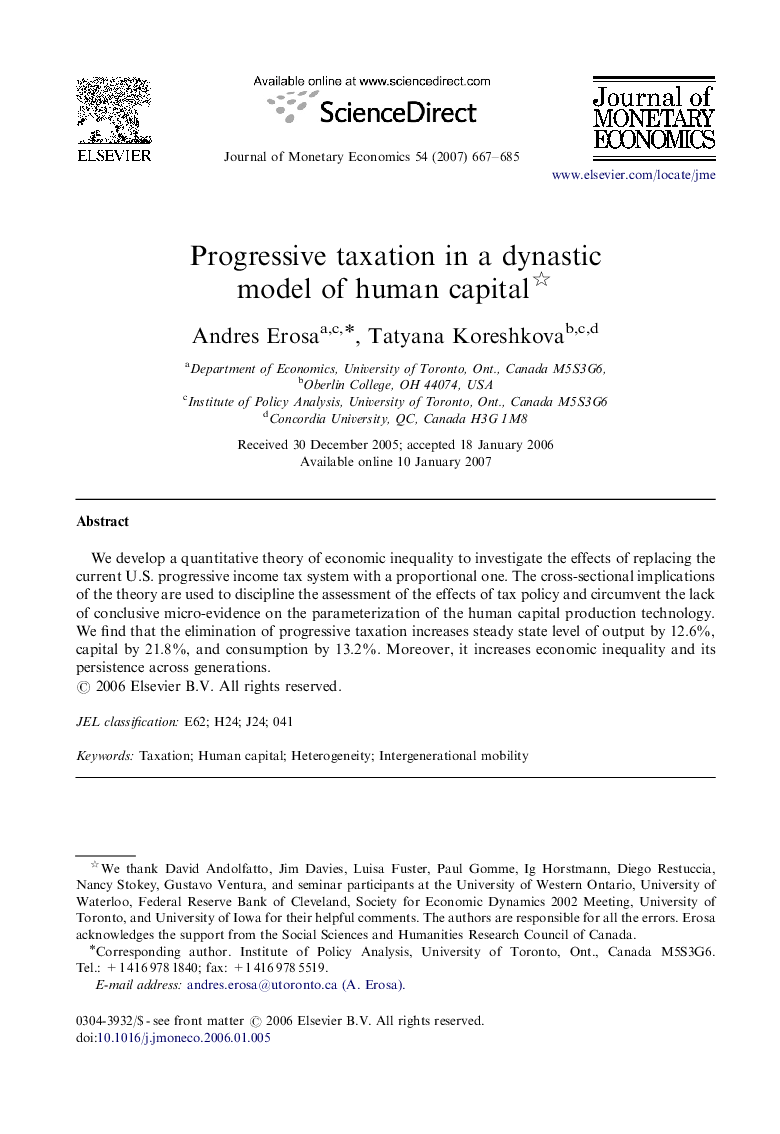| Article ID | Journal | Published Year | Pages | File Type |
|---|---|---|---|---|
| 968013 | Journal of Monetary Economics | 2007 | 19 Pages |
Abstract
We develop a quantitative theory of economic inequality to investigate the effects of replacing the current U.S. progressive income tax system with a proportional one. The cross-sectional implications of the theory are used to discipline the assessment of the effects of tax policy and circumvent the lack of conclusive micro-evidence on the parameterization of the human capital production technology. We find that the elimination of progressive taxation increases steady state level of output by 12.6%, capital by 21.8%, and consumption by 13.2%. Moreover, it increases economic inequality and its persistence across generations.
Related Topics
Social Sciences and Humanities
Economics, Econometrics and Finance
Economics and Econometrics
Authors
Andres Erosa, Tatyana Koreshkova,
